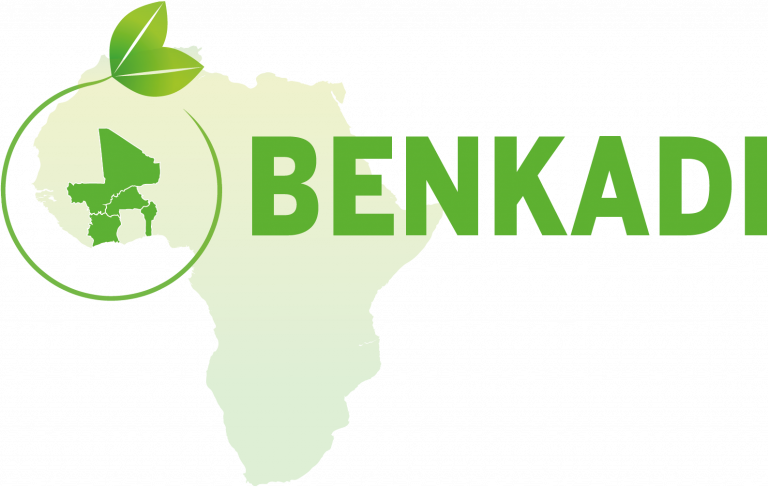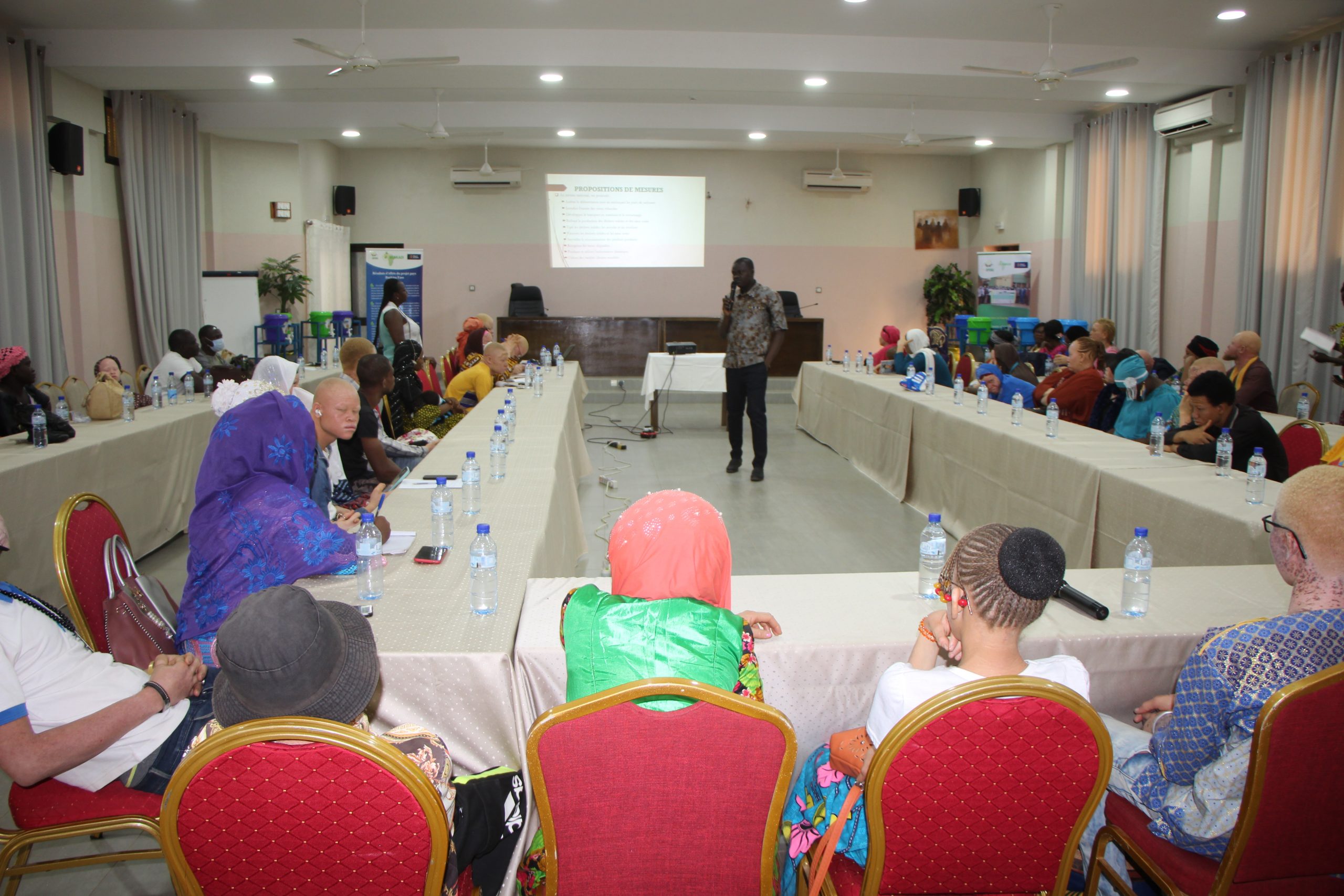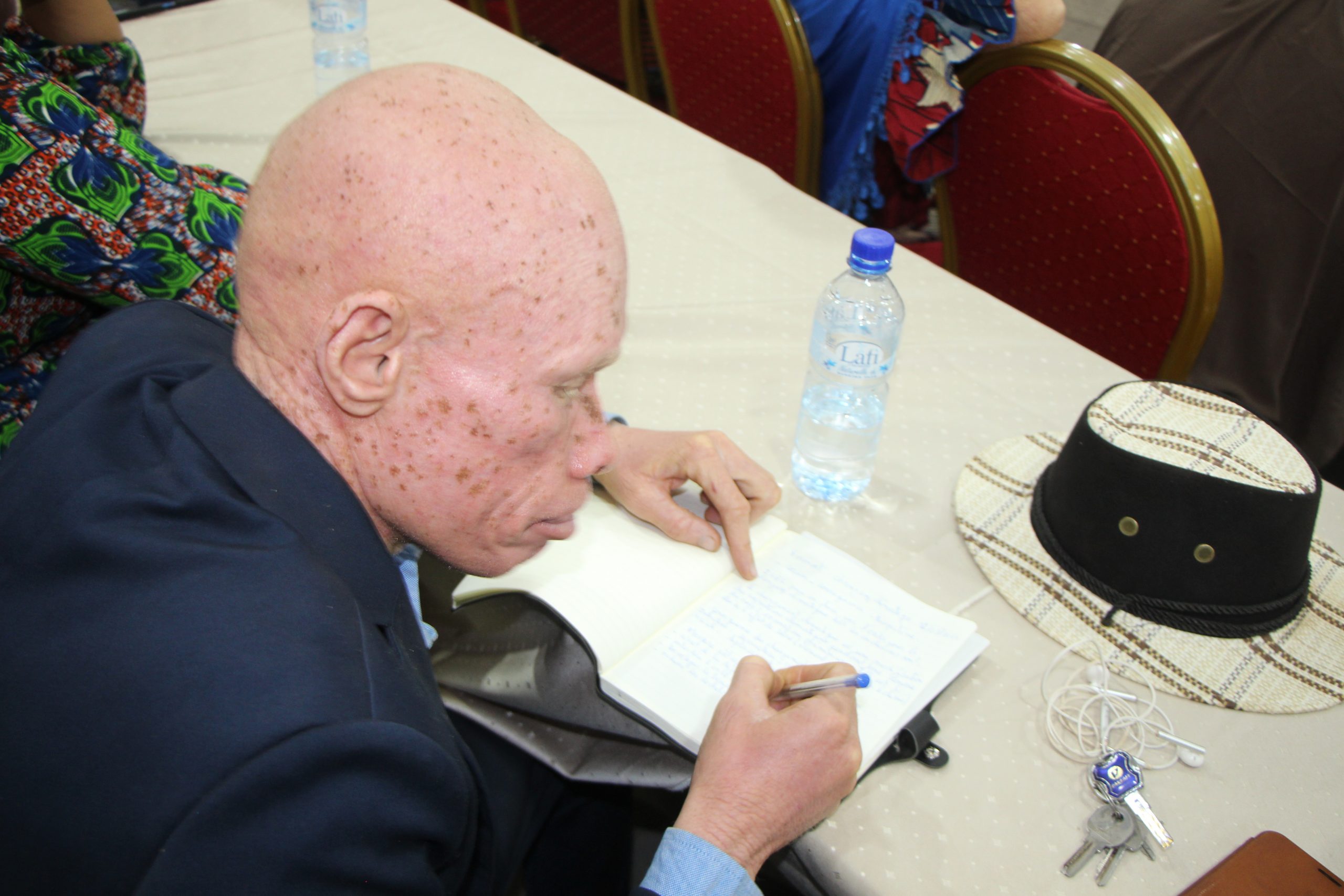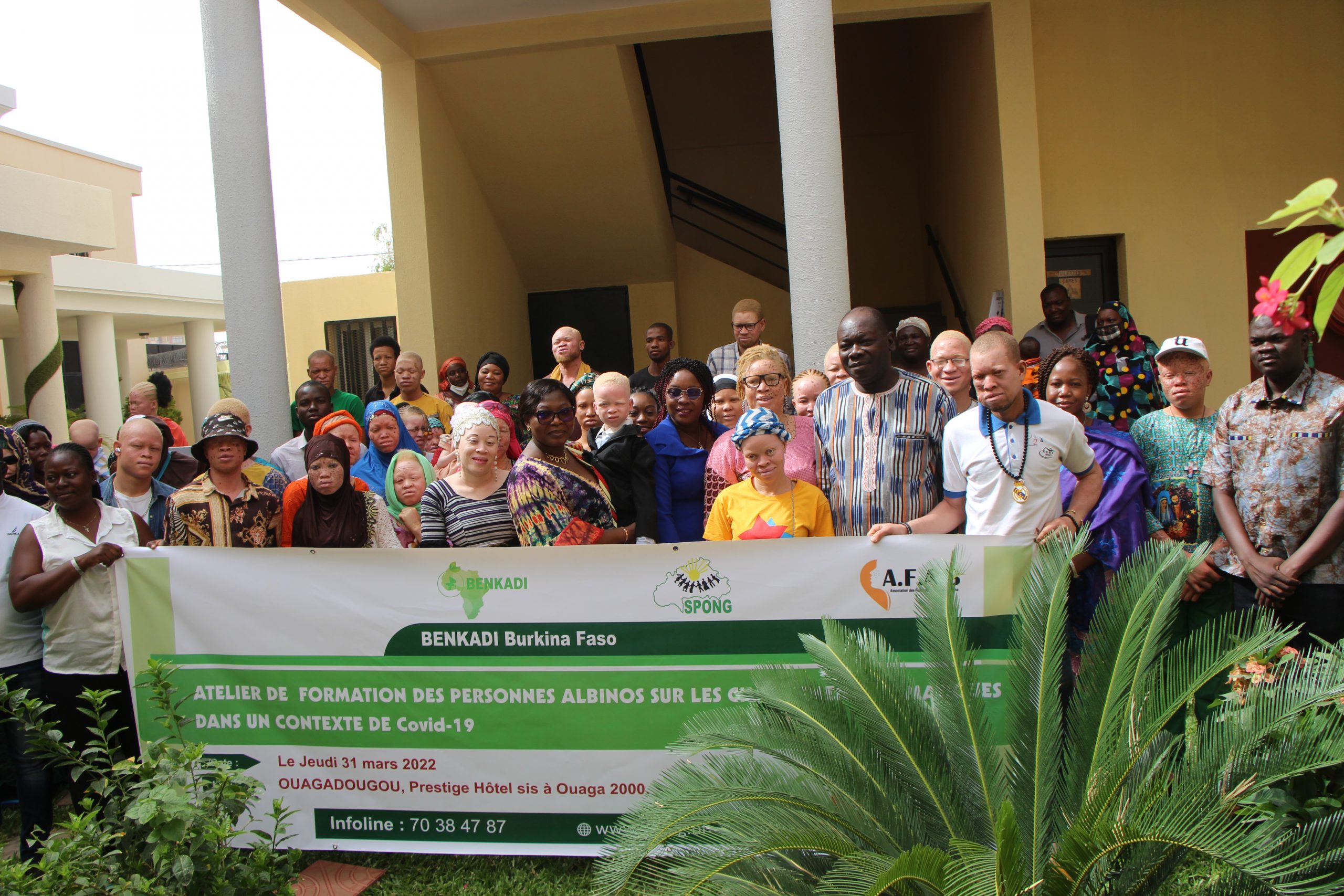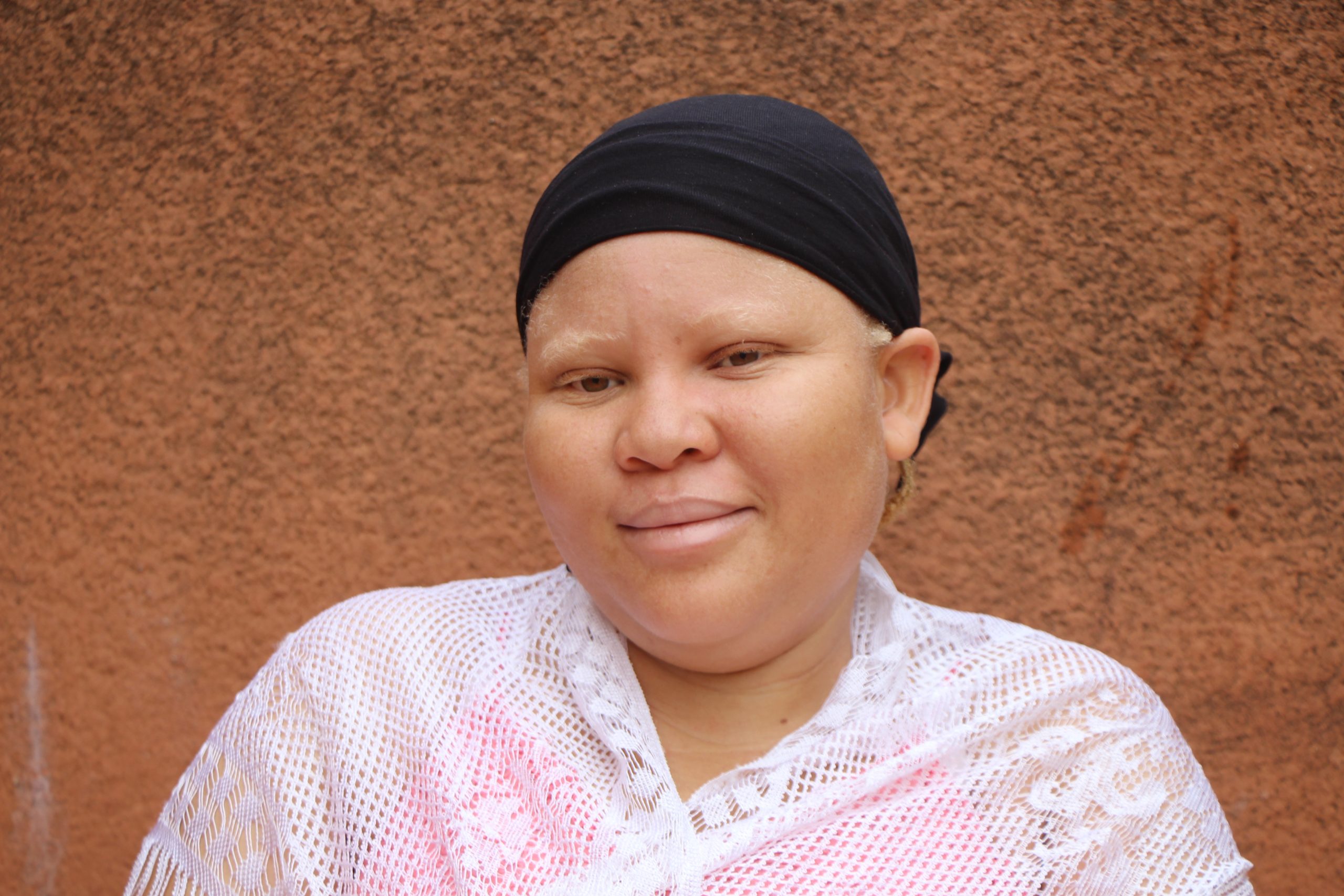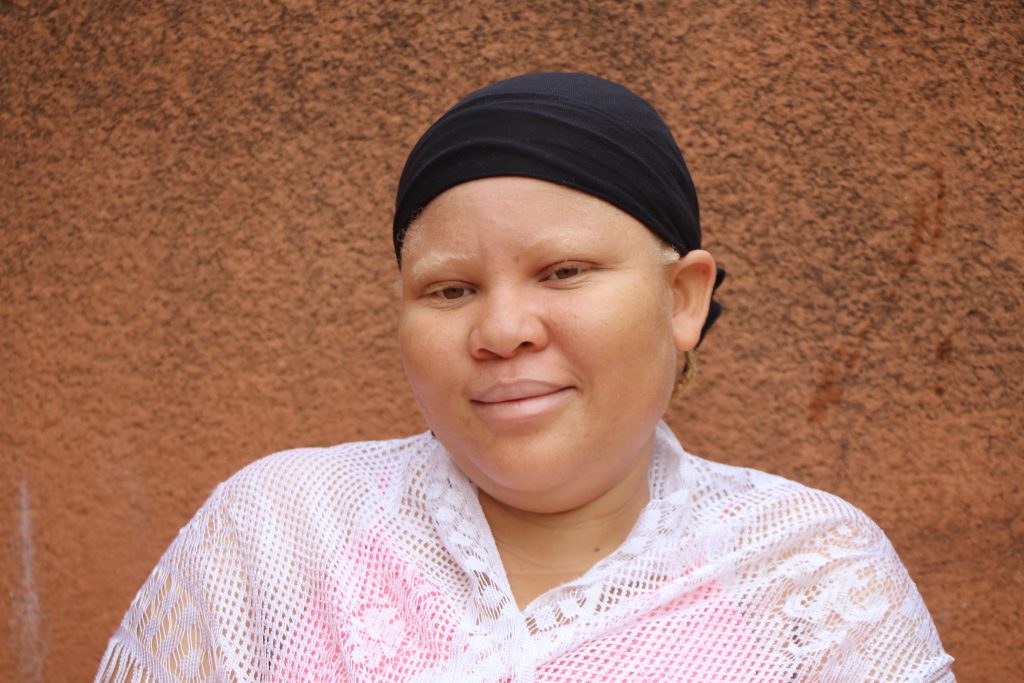Full of will and committed to the quest for better living conditions, Asseta fights like many people with albunism in Burkina Faso, a country where the average temperature fluctuates at 41°. Her voice sometimes overwhelmed by emotion, she still wants to express herself, because she was the beneficiary of a training session on climate change held on March 31, 2022 in Ouagadougou by the Benkadi project. Holder of a degree in English, Asseta, a young albino comes from a family of seven (07) children, three (03) of whom have albinism. Stigmatized since her childhood because of her condition as an albino, she still has psychological and emotional consequences today. She gives us here a testimony that is as edifying as it is challenging, with an emphasis on the resilience, temerity and audacity of people with albinism in a context of global warming.
Albinism is often seen as an ominous sign in Burkina Faso. Indeed, society perpetuates very harmful and retrograde beliefs about people with albinism, who are often shunned, fooled or even killed during ritual practices. Like so many others, Asseta learned to cope with albinism, but she had to battle the stigma attached to her skin color.
It is with a firm and warm handshake that she welcomes us to her home in the Dassasgho neighborhood in Ouagadougou where she lives with her brothers and sisters. “Shall I bring you a drink?” she asks us, after taking care to install us comfortably. “At school, no one wanted to sit next to me,” she specifies from the outset. And to continue, moved by the memory, “even during sports activities, where you are asked to do groups, all the groups rejected me…. I found myself all alone, and sometimes in tears”.
However, all these rejections did not weaken the determination of Asseta, who courageously continued his studies until he brilliantly obtained his English degree in 2020 at the Joseph Ki-Zerbo University in Ouagadougou. "I am proud today to have been able to overcome all the hardships to realize my dream of having a diploma", she confides. Today, Asseta aims to do a Master's degree in order to pursue a career in diplomacy or to be an interpreter in a reference organization. If Asseta was able to brave ridicule and insults of all kinds, other albino people, on the other hand, were not so lucky. Indeed, several dozen children were forced to leave the benches, tired of the stigma. Some of them spend whole days at home because of the fear of other people's eyes. So many deep wounds buried in their subconscious, which deteriorate their self-esteem.
Obtaining his scroll is not the only guarantee of fulfillment for Asseta. Like other young girls and boys in her situation, she is a member of the Association of Albino Women of Burkina Faso (AFAB). This association carries out activities as rich as they are varied, in order to find solutions to the difficulties encountered by people with albinism.
The objectives of AFAB correspond to the specificities of the Benkadi project which advocate the promotion of gender and social inclusion, hence the training organized for them. For Asseta, this training workshop for albino women on issues related to climate change in the context of COVID 19 was truly an unforgettable experience. “The training allowed me not only to strengthen my knowledge on issues related to climate variations and their impacts on people with albinism, but also to receive practical advice on how to deal with them”. Asseta and her community are now more familiar with the right behaviors to adopt and are above all willing to train other people on the issues of climate change on vulnerable populations and the best practices to implement. Indeed, the rise in temperatures causes the development of diseases such as skin cancer and eye-related diseases. It is therefore to be feared that the impacts of climate change will strongly influence the situation of people with albinism and accentuate the risks of vulnerability of this segment of the population.
Beyond the training itself, admits to having felt respected in her difference, and this has reinforced her self-confidence. "I thank the Benkadi project for this attention given to our community and the new perspectives that are opening up for us," she says full of emotions. Asseta's experience could be summed up in this sentence by Georges Bernanos which states that: "to find hope, you have to go beyond despair. When we go until the end of the night, we meet a new dawn”.
By Victor Komondi Communication and Advocacy Expert Benkadi Project Burkina Faso Email: victorkom@gmail.com
De Victor Komondi
Expert Communication et Plaidoyer
Projet Benkadi Burkina Faso
Mail : victorkom@gmail.com
